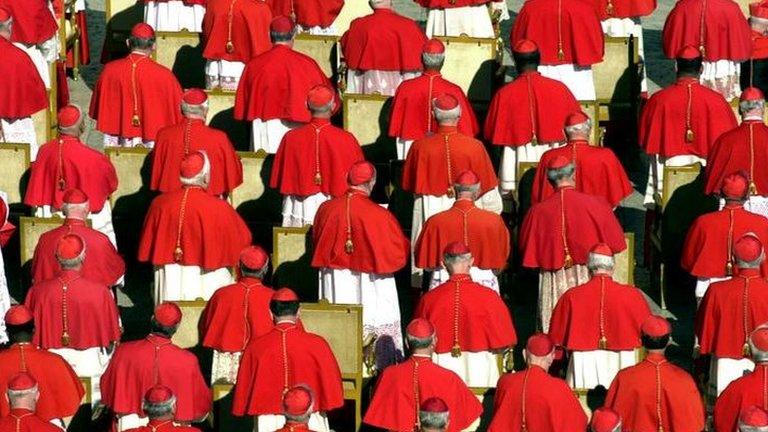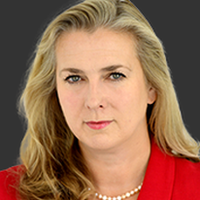Synod sows confusion among Pope's faithful
- Published
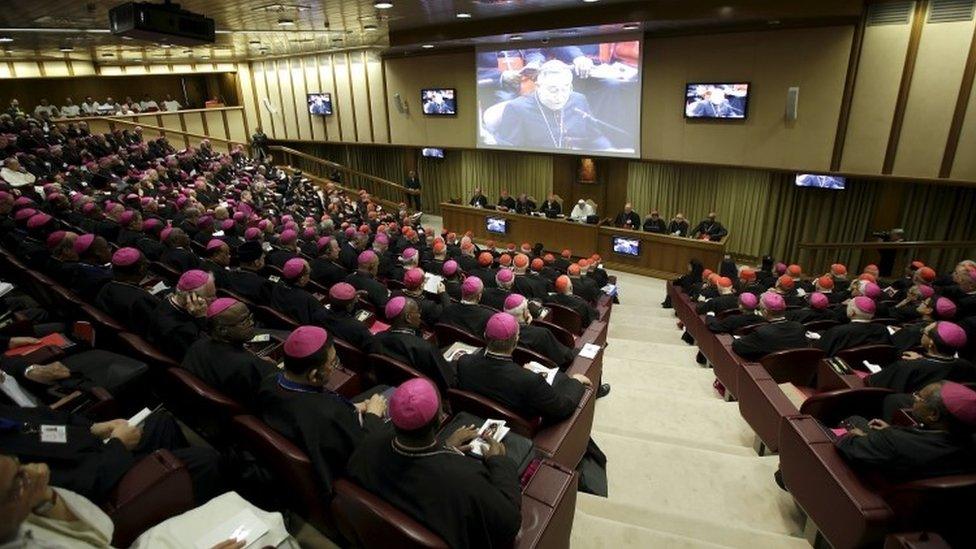
Pope Francis leads the Synod on the Family at the Vatican
On Monday morning, Rome Fiumicino airport was filled with weary clerics, bleary-eyed after three weeks of intense and sometimes tense debate.
They were returning home to the 120 countries they had travelled from to discuss and debate openly, as Pope Francis had asked them to do, how the Church treats the Catholic family across the world.
As Pope Francis told bishops, "journeying together" (from the Greek root of the word Synod) is easier to say than to do.
At times over the past three weeks the bishops and some members of the laity gathered in Rome have seemed to be travelling on rather different paths and the process - deemed "invigorating" and "a breath of fresh air" by some - has left others with real concerns about the unity of the Roman Catholic Church.

What is the Synod of Bishops?
The Synod in the Roman Catholic church is a group of about 300 bishops that advises the Pope.
Members may be elected by conferences of bishops from different parts of the world or appointed directly by the Pope.
The Vatican says, external the Synod's advice may cover "the preservation and growth of faith and morals... the observance and strengthening of ecclesiastical discipline and... questions pertaining to the activity of the Church in the world".
The body discusses issues and may express its views but it does not "resolve" questions or issue decrees, unless the Pope specifically asks it to.
Its meetings are an opportunity for the Pope to better understand the thinking of his bishops; they also offer a theoretical chance for the voice and experience of ordinary Catholics to be heard.

Definition debates
Traditionalists - led by bishops from parts of Africa and Eastern Europe, as well as some Americans and Australians - feared being railroaded into accepting more liberal definitions of the family, including more welcoming language towards gay Catholics and a more positive approach to those in long-term same-sex unions.
The issue of homosexuality was brought vividly into focus by the "coming out" of the Polish priest Krzysztof Charamsa on the eve of the Synod by a priest who had worked within the Vatican department responsible for doctrine and who called the Church's current attitude towards gay Catholics "backwards".
Msgr Krzysztof Charamsa: "Every homosexual person is [a] son of God...this is the will of God"
But ultimately, there was little change on the issue, with the final document reiterating current Church teaching that gay Catholics must be respected and not discriminated against, while re-emphasising that there was "no basis for any comparison, however remote, between homosexual unions and God's design for marriage and the family".
However, traditionalists did not quite manage to head off attempts - led by the German church - to open a pathway towards offering communion to the divorced and civilly remarried.
In the end, the Synod found compromise and forms of wording that allowed bishops to pass the most controversial sections of the final document.
The three most contentious sections on helping families in "irregular" situations squeaked through on Saturday - one of them by just one vote - opening the way to individual conscience and "discernment" on the matter, guided by the clergy.
Although the wording was left deliberately vague, the section does nod towards allowing the clergy to help parishioners receive the sacraments after divorce and remarriage if they are truly penitent - yet without changing doctrine.
Leadership questions
This is a Pope whose message of mercy has proved wildly popular with the faithful, as has his clear reiteration within this Synod that he wants a compassionate Church that understands more and condemns less - and "journeys with" its flock, getting its hands dirty in the stuff of real lives in the modern world.
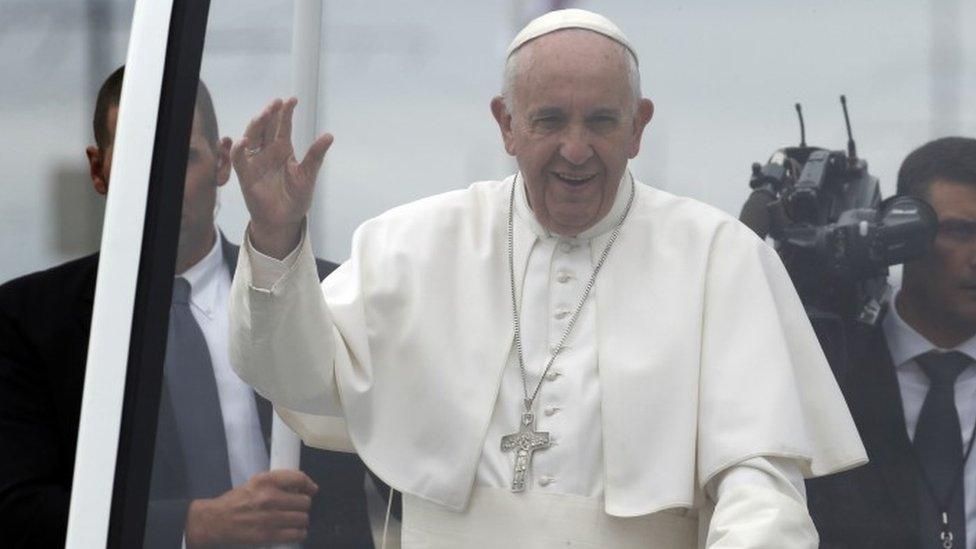
Pope Francis wants a more compassionate Church
But this meeting of bishops has proved less popular with some in his own Church, especially the more conservative, who worry that it has sown confusion among the faithful and raised question marks over Pope Francis's style of leadership - and where he is taking the Church.
The idea of greater decentralisation, which Pope Francis emphasises in the middle of the Synod, has troubled those who care deeply about consensus and the future unity of the Roman Catholic Church.
"This is one of the most complex jobs in the world and I fear that Pope Francis has relied too much on intuition and does not have a strategy," says a source.
The message that's rung out from the Vatican in recent weeks has indeed sometimes been discordant and it is being interpreted in many different ways.
Cardinal Vincent Nichols, Archbishop of Westminster, says that the experience of the Synod was an exhausting but also remarkable and fruitful journey.
So what was his interpretation of the final document regarding the divorced or those in difficult family situations?
"It says we have to find fresh ways of accompanying families at every stage in their lives, and that's particularly true for those who have experienced hardship, hurt and breakdown and maybe have entered into second marriages," he says.
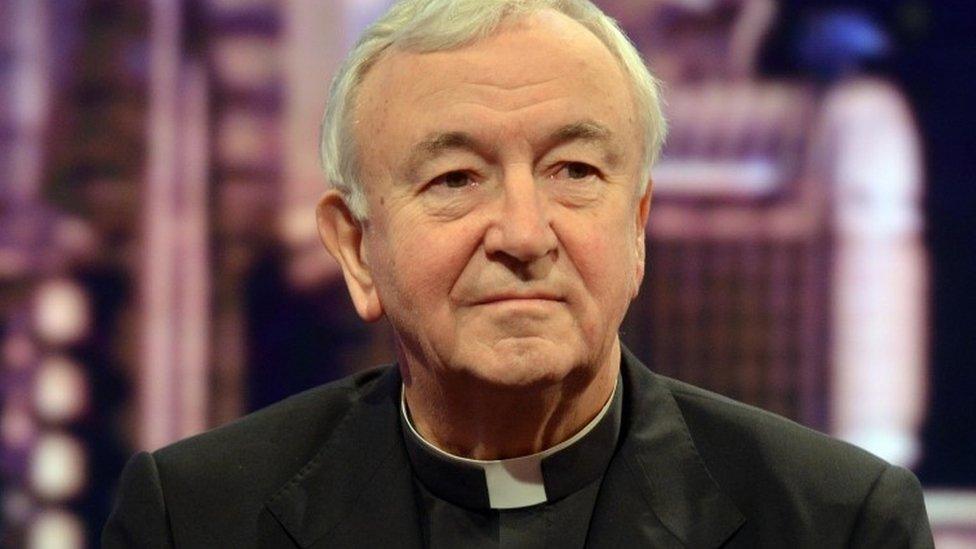
Cardinal Nichols says the Synod was an exhausting but remarkable experience
Pivotal moment
The signals coming from this Synod have allowed both the liberals to claim victory - and the more conservative to point out that no doctrine has been changed.
Traditionalists say that the Church has always taught mercy and understanding of the lives led by its less-than-perfect flock, even before Pope Francis's emphasis on a less judgemental style.
Cardinal George Pell, now Prefect of the Secretariat for the Economy at the Vatican, says that there were early attempts by some at the Synod to take the Church in a direction with which traditionalists were deeply unhappy.
"They would rewrite the teachings of the Church on sexuality, marriage and the family in the light of modern understandings. Well for us, for orthodox Christians in every Christian denomination, the first normative word is the teachings of Jesus Christ."
There is further uncertainty ahead, as the Pope must now work out what he wants as he draws together his own thoughts after hearing his bishops' advice.
This has been a pivotal moment of his pontificate - yet few are sure where all of this leads. And Pope Francis will have to handle the fruits of this Synod with care if it is not to divide his flock.
- Published24 October 2015
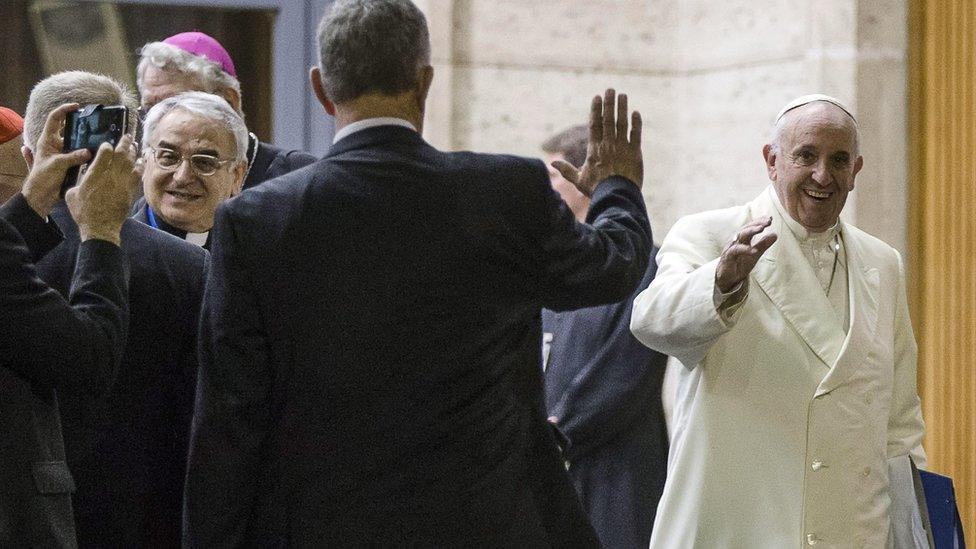
- Published15 October 2015
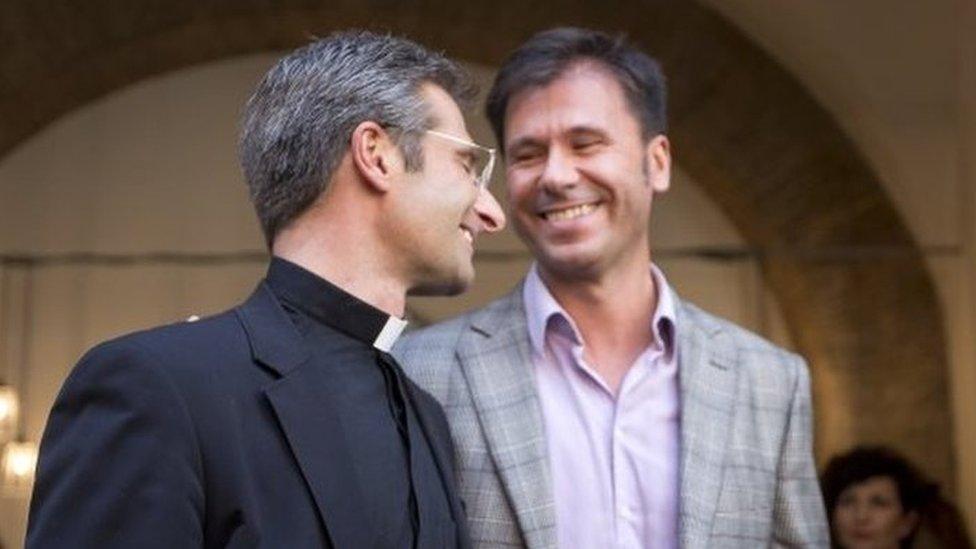
- Published4 October 2015
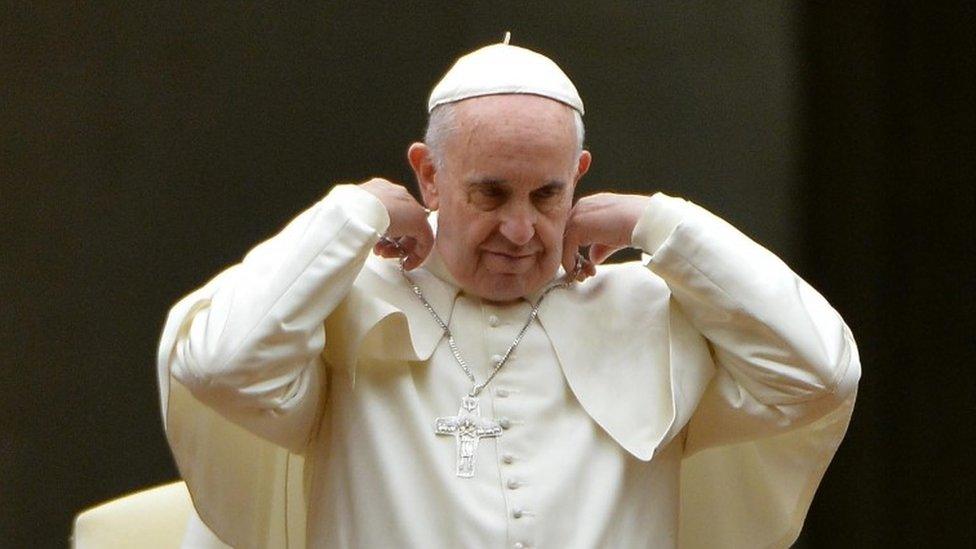
- Published3 October 2015
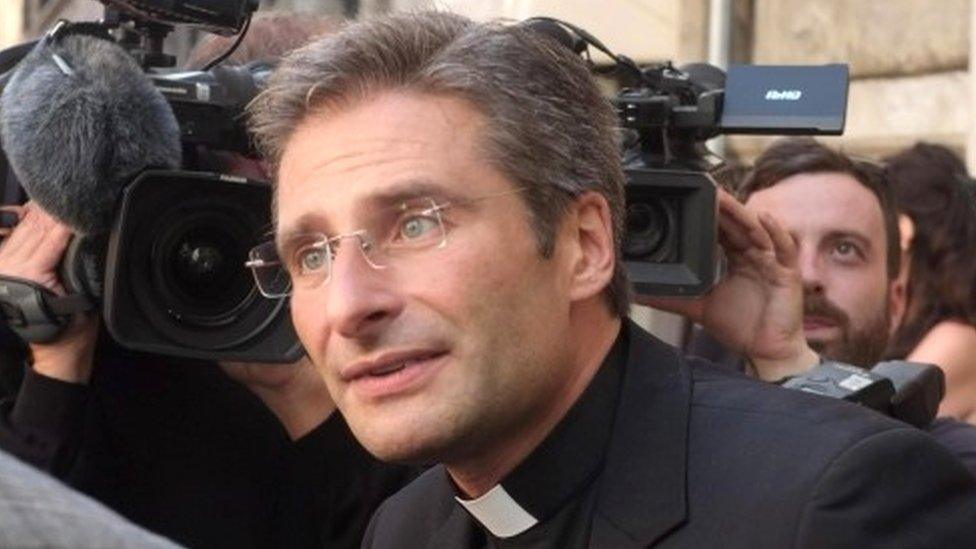
- Published28 October 2022
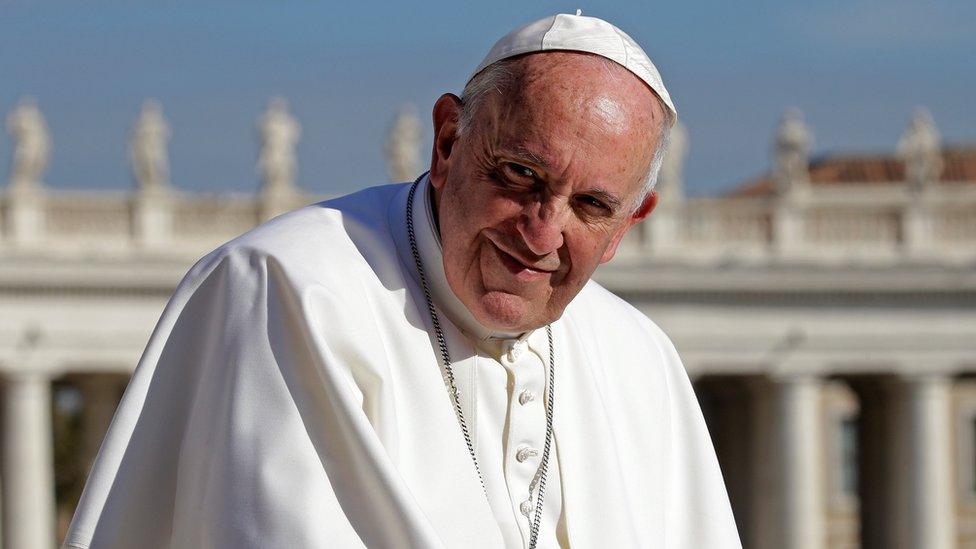
- Published19 March 2013
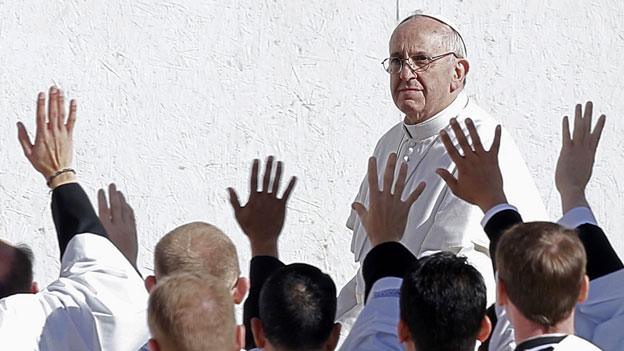
- Published17 November 2023
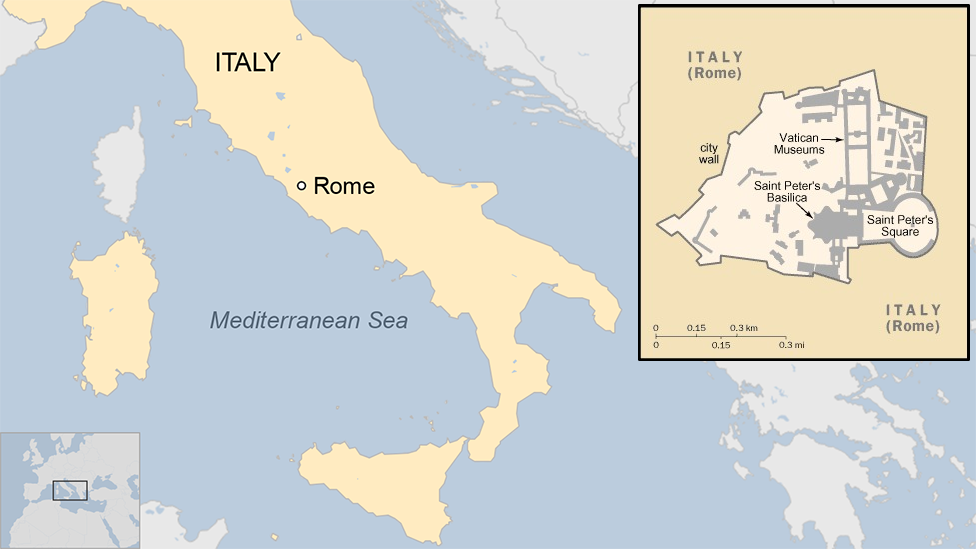
- Published14 March 2013
